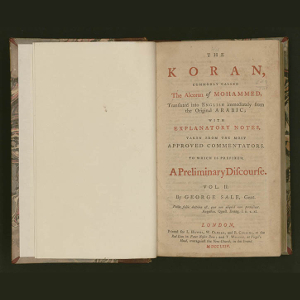| |
|
|
Archive
|
| The Faith of the Presidents (encore) |
| February 15, 2024 |
From George Washington to Joseph Biden, we explore the often surprising religious history of the presidency and the Constitution's promise of religious freedom. |
|
|
|
|
|
|
|
| Untraditional Christians: The Beliefs of the Founding Fathers (encore) |
February 15, 2024 |
|
Though the Founding Fathers were Christian, many of them held beliefs out of step with most American Christians of their time – and ours. We asked Catherine Brekus, professor of the history of religion at Harvard Divinity School, to describe the faith of the presidents in the early years of the republic. She talks about their beliefs in Deism, their stand against a religious establishment, and the limits of their willingness to extend religious freedom to all.
Catherine Brekus, Charles Warren Professor of the History of Religion in America at Harvard Divinity School
|
|
|
|
 |
|
| Presidential Religion in the Civil War and The Age of Imperialism. (encore) |
February 15, 2024 |
|
Both Union and Confederate leaders invoked God to advance their causes during the Civil War. But Abraham Lincoln refused to claim the divine on his side. Heather Curtis, a professor of religion at Tufts University, explains Lincoln’s approach to faith, and why he didn’t join a church. She also delves into the religious roots of William McKinley’s assertive foreign policy, and Woodrow Wilson’s leadership during World War I and his founding of the League of Nations.
Heather Curtis, department chair and associate professor of religion at Tufts University and author of Holy Humanitarians American: Evangelicals and Global Aid
|
|
|
|
 |
|
| Jefferson’s Quran. (encore) |
February 15, 2024 |
|
As a law student, Thomas Jefferson bought a Quran from an English publisher. But why? Did he read it as a sacred text? As a window into Muslim law? Denise Spellberg, professor of history at the University of Texas at Austin explains the likely reasons for Jefferson’s purchase, which is now in the Library of Congress, and how he and his contemporaries thought about Muslims.
Denise Spellberg, author of Thomas Jefferson’s Quran: Islam and the Founders

Thomas Jefferson's Quran
Library of Congress
|
|
|
|
 |
|
|
|
|
|
|
|
|